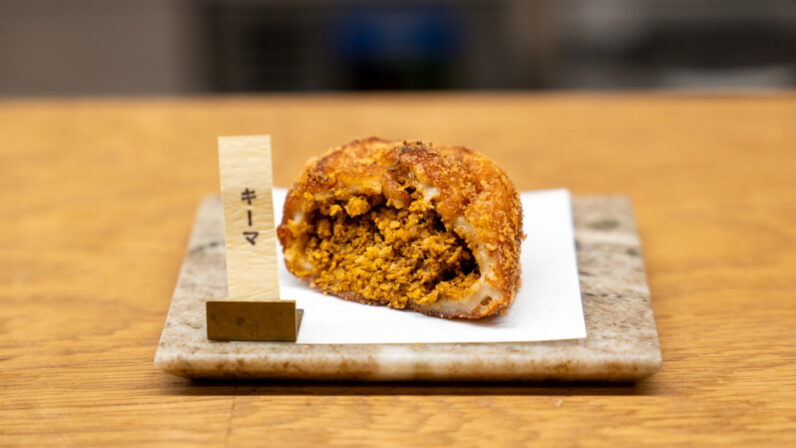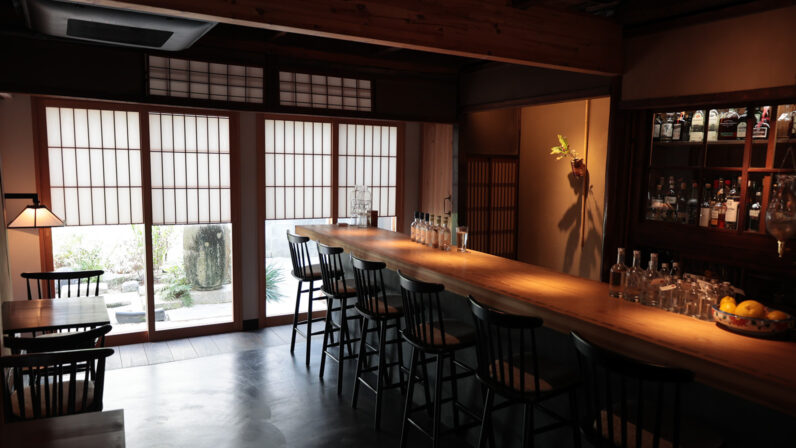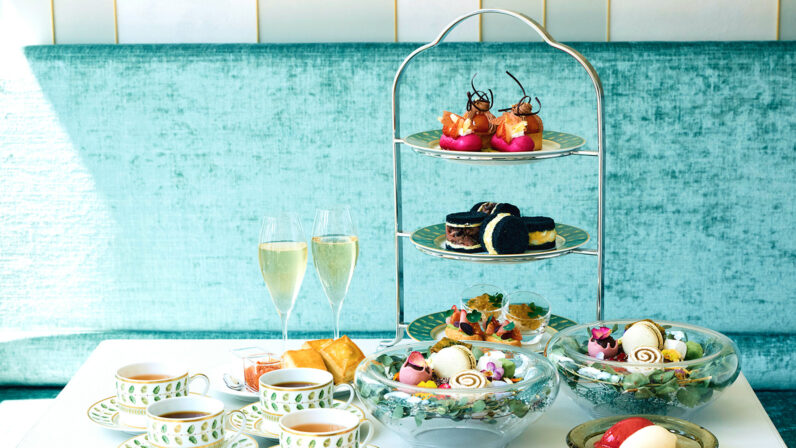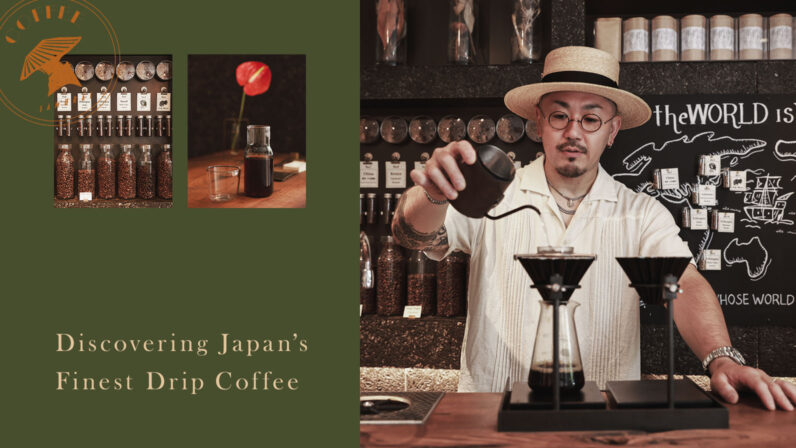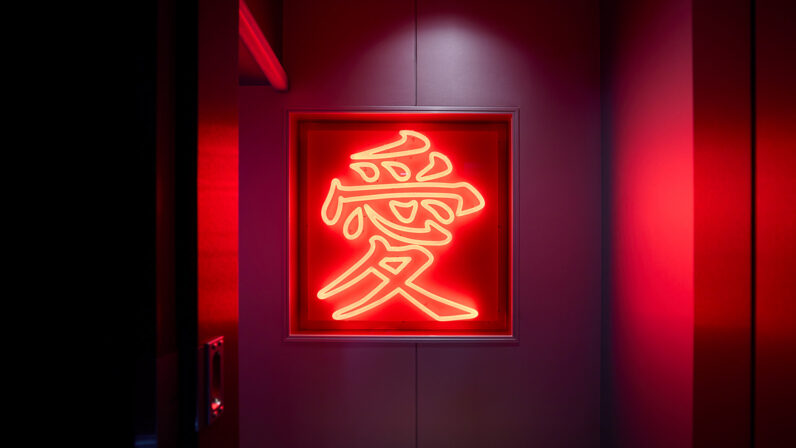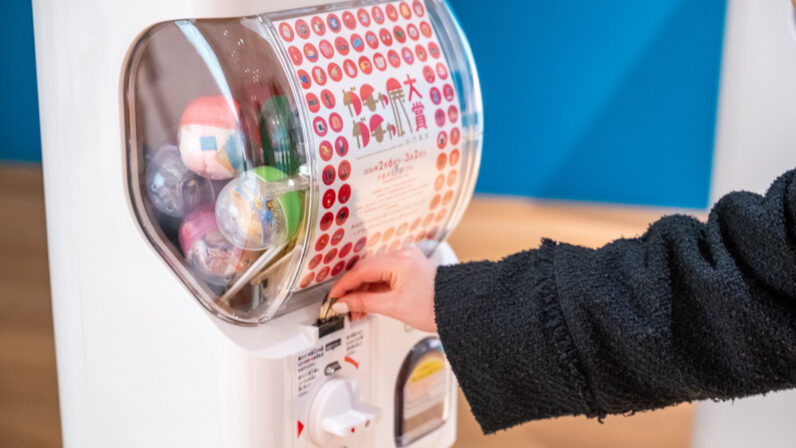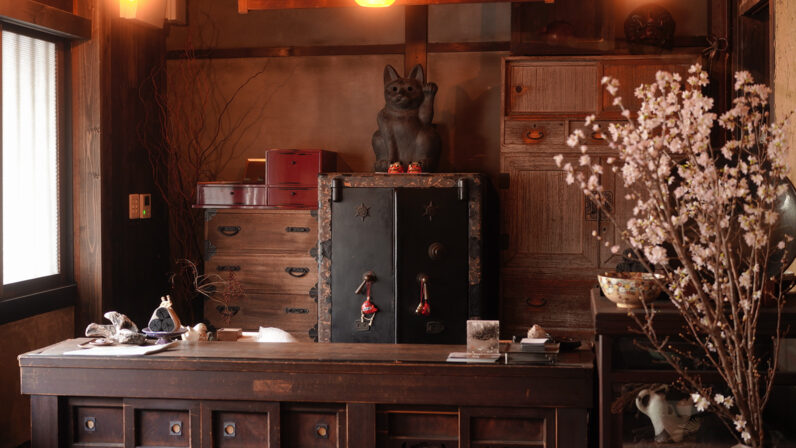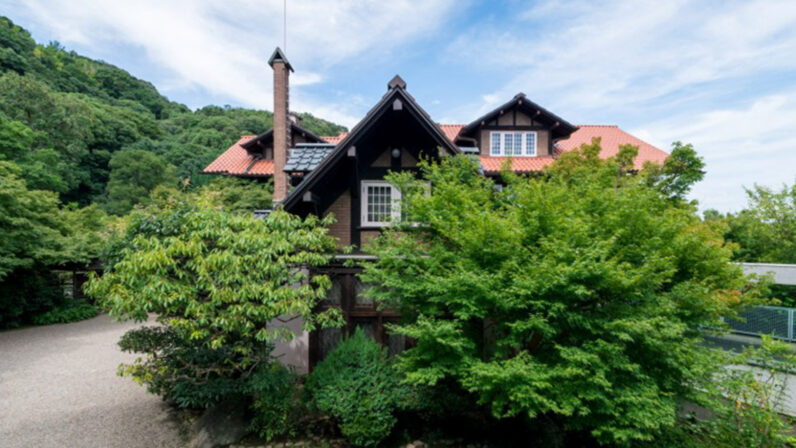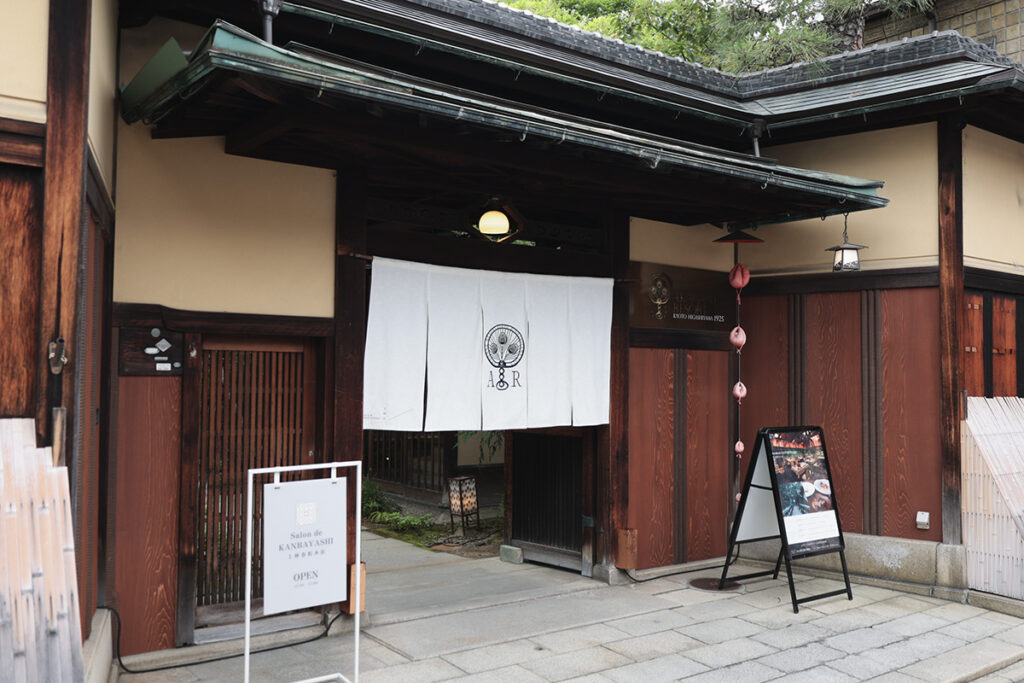
The Yasaka Pagoda, a well-known landmark in Kyoto’s Higashiyama district, towers above the narrow lanes where tourists come and go. Just off one of these side streets, behind a modest gate, stands a quietly elegant building: AKAGANE RESORT KYOTO HIGASHIYAMA 1925. Originally built as a private residence in 1925, the property has been transformed into a modern-day cultural retreat. Set on a spacious 2,300-square-meter lot, it now houses a restaurant, wedding venue, and a beautifully landscaped garden that adds to its serene, secluded charm.
Nestled within the grounds is a striking white building with windows on either side. This is Salon de KANBAYASHI, the café at the heart of our story.
Brought to Life through Collaboration with a Historic Uji Tea House
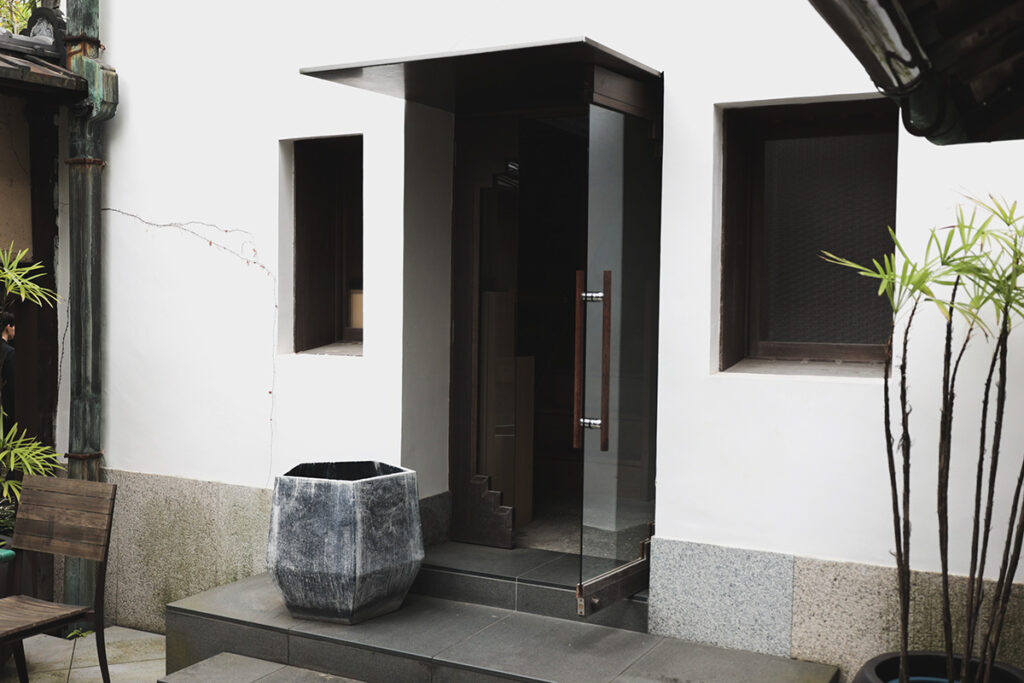
Salon de KANBAYASHI opened in 2015, under the direction of Kanbayashi Shunsho Honten, a long-established prestigious tea shop from Uji, Kyoto. It started as a renovated storehouse next to a private residence and was originally called Kura Café.
The café’s current name then came about through a collaboration with Kanbayashi Shunsho Honten. Founded in the Azuchi-Momoyama period, the Kanbayashi family’s history goes back even further to the Muromachi era, where they served as tea masters to influential figures. While deeply rooted in tradition, the company is also innovative and oversees products like the bottled green tea Ayataka, balancing heritage with modernity.
General Manager Naoya Matsuoka shares the story behind the café’s relaunch:
“Kanbayashi Shunsho Honten has a strong desire to carry Japan’s tea culture into the future. As the custom of brewing tea in a kyusu (Japanese teapot) fades from everyday life, they wanted to create a space where people could truly appreciate the full flavor and depth of loose-leaf tea.”
An Intimate, Secluded Space with a Welcoming Atmosphere
As you step inside, you enter a partly open two-story space with a few tables and chairs on both floors. From the ceiling hangs a lighting fixture made up of bronze-colored spheres clustered together, casting a soft, warm glow throughout the area.
The name Akagane in AKAGANE RESORT is an old Japanese word meaning copper. Since this was once the private residence of the president of a copper processing company, copper and bronze-colored interior accents are sprinkled throughout the grounds.
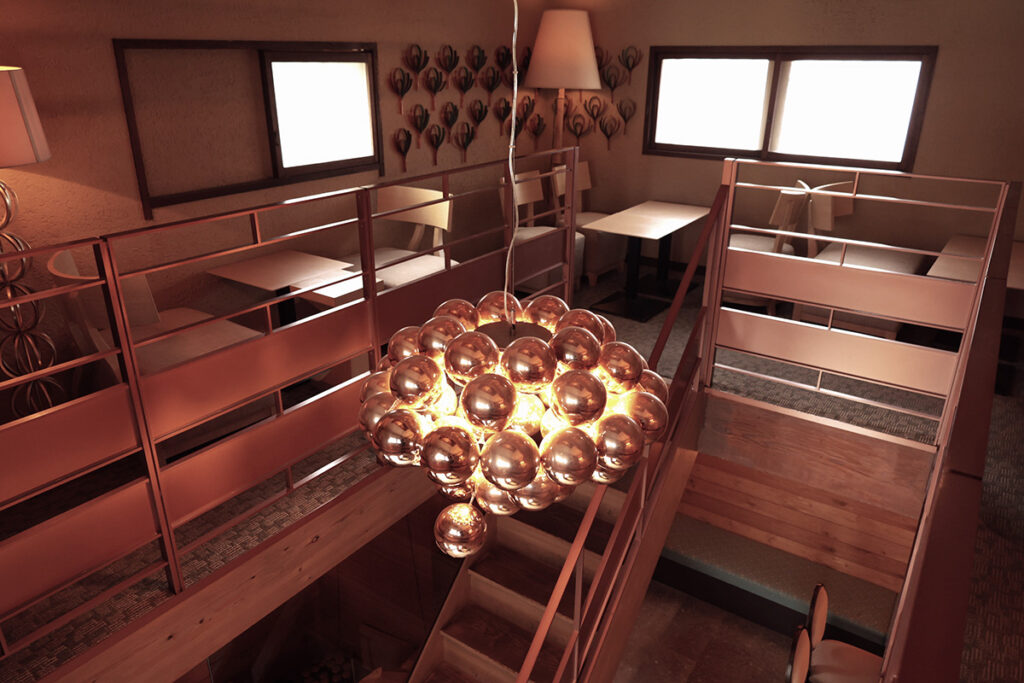
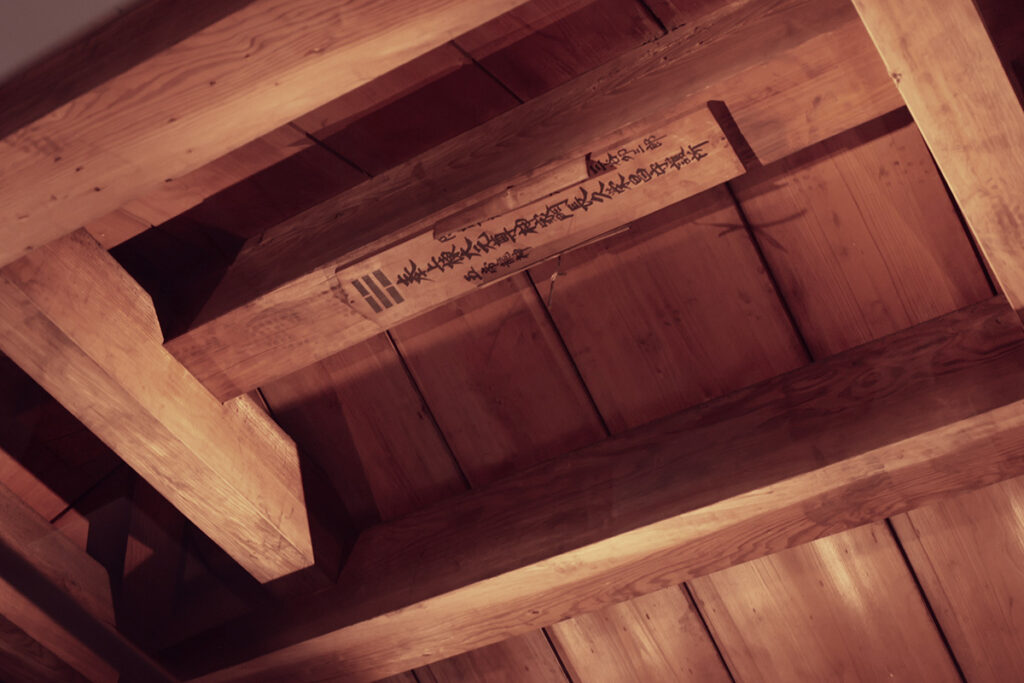
The ceiling is made of glass, and beyond it, you can see a munafuda, a wooden plaque nailed to the ridgebeam at the time of construction, meant to wish for the family’s lasting prosperity. Since these plaques are rarely seen, first-time visitors often find themselves fascinated by it.
Originally a storehouse, the space is not very large and doesn’t let in much natural light. However, this actually adds to its cozy, hidden-away atmosphere.
Rediscovering the Depths of Japanese Tea
I took a seat by the window and opened the menu. At the top was Zuigyoku, a premium variety of gyokuro, a shade-grown Japanese green tea known for its rich umami flavor and delicate sweetness. I ordered it without hesitation. Soon, a tray arrived with a beautifully arranged tea set, and the staff gently explained how to brew it.
The tea leaves came in a small metal container, which I placed into a kyusu teapot. The hot water was first poured into a cooling vessel to lower the temperature slightly. Once it reached the right temperature, I poured it into the teapot and let the tea steep for three minutes, using a small hourglass to keep time. Finally, I poured it into a delicate teacup.
The steps weren’t complicated, but there was a quiet sense of ceremony to the process that made me feel just a little nervous.
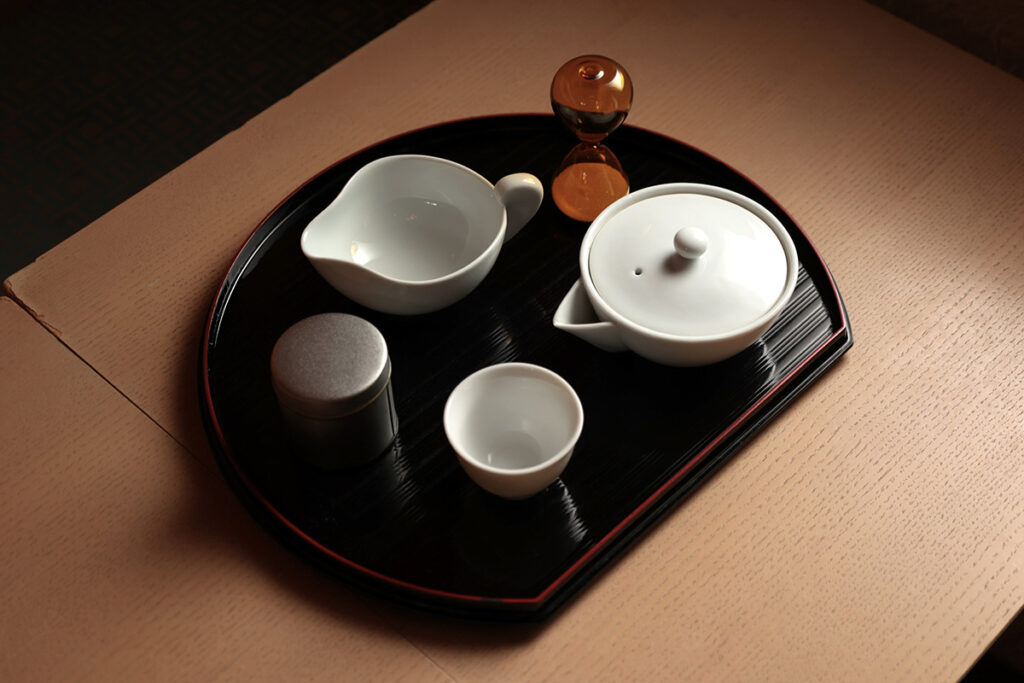
I lifted the cup and took a sip. Before the flavor even registered, a refined aroma unfolded, quietly melting away the slight tension I’d felt. The first taste was unexpectedly rich in umami. People often say that certain high-quality teas taste like dashi, and this was exactly that, though far more delicate, more layered, and above all, more gentle.
“The second cup will taste a little different,” the staff told me, sparking a quiet sense of anticipation. The brewing steps were the same, except for one final touch: tilting the teapot at a sharp angle to draw out every last drop.
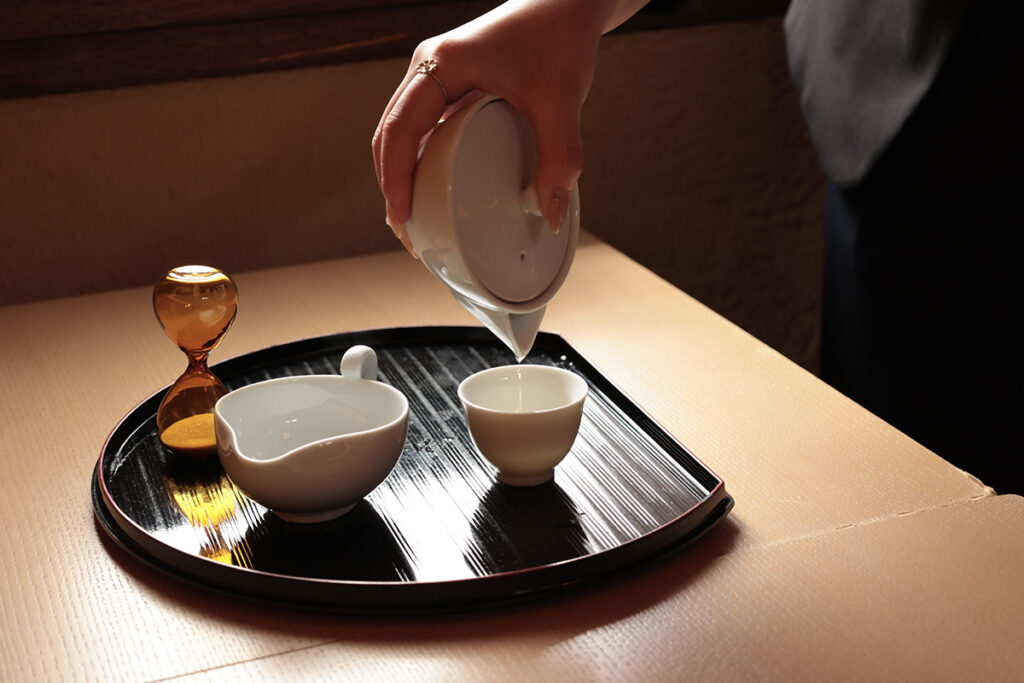
The second cup revealed more of the tea’s true character, with a pleasant touch of bitterness. It was a completely different experience from the kind of tea I usually drink, something in a class of its own.
The menu offers much more than just gyokuro. You’ll find a range of sencha varieties, along with coffee, alcoholic drinks, Western-style desserts, and even an elegant five-tier afternoon tea set. The seasonal parfaits are especially striking, so beautiful that even those without a sweet tooth might find them hard to resist.
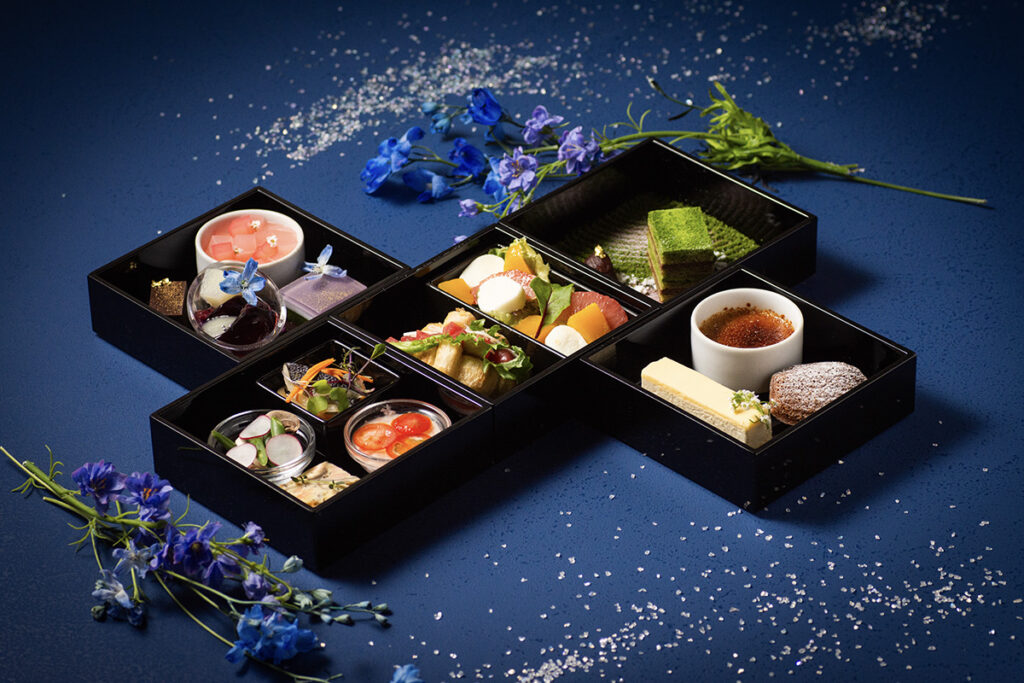
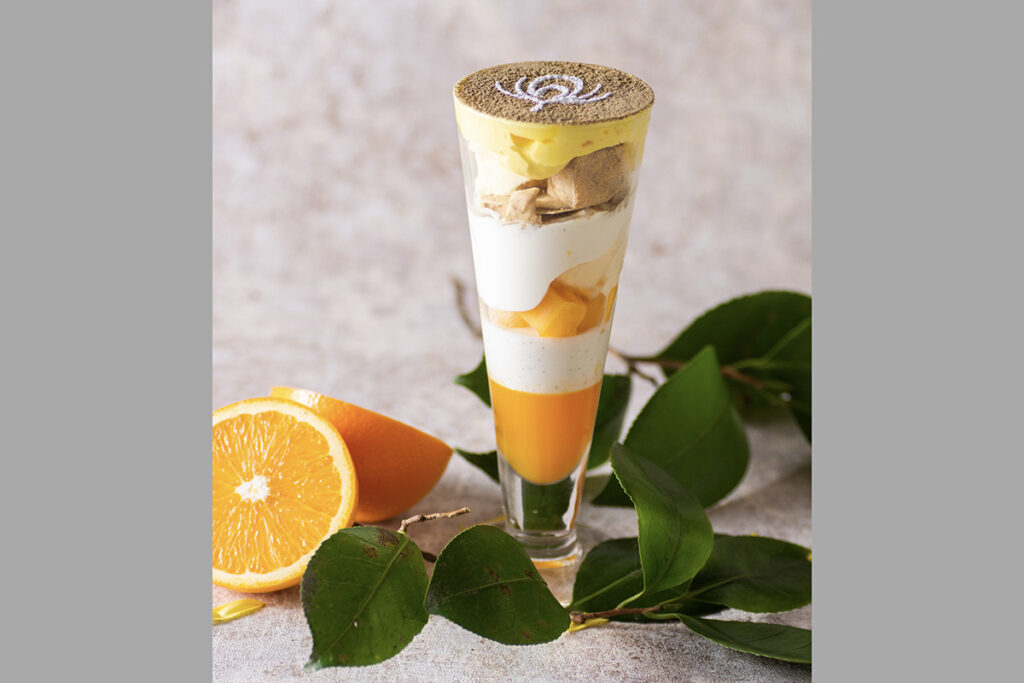
1st image: Five-tier afternoon tea set “Kyoto KASANE: Night Sky”
2nd image: “Tropical Hōjicha Parfait,” available from June 2025
*Menu items for the afternoon tea and parfaits are subject to seasonal changes.
(Photos courtesy of Salon de KANBAYASHI by Kanbayashi Shunsho Honten)
Escaping the Outside Hustle and Bustle in the Lush, Tranquil Garden
After enjoying the tea, I stepped outside. As I looked around the grounds, I noticed touches of verdigris, the distinctive green-blue patina that forms on oxidized copper, used as subtle accents on tables and walls.
Right across from the café is a large building, a Taisho-era residence beautifully renovated with a retro-modern flair. Just inside the entrance, there is a private VIP room available for exclusive bookings on the right, and a spacious 100-square-meter banquet hall on the left.
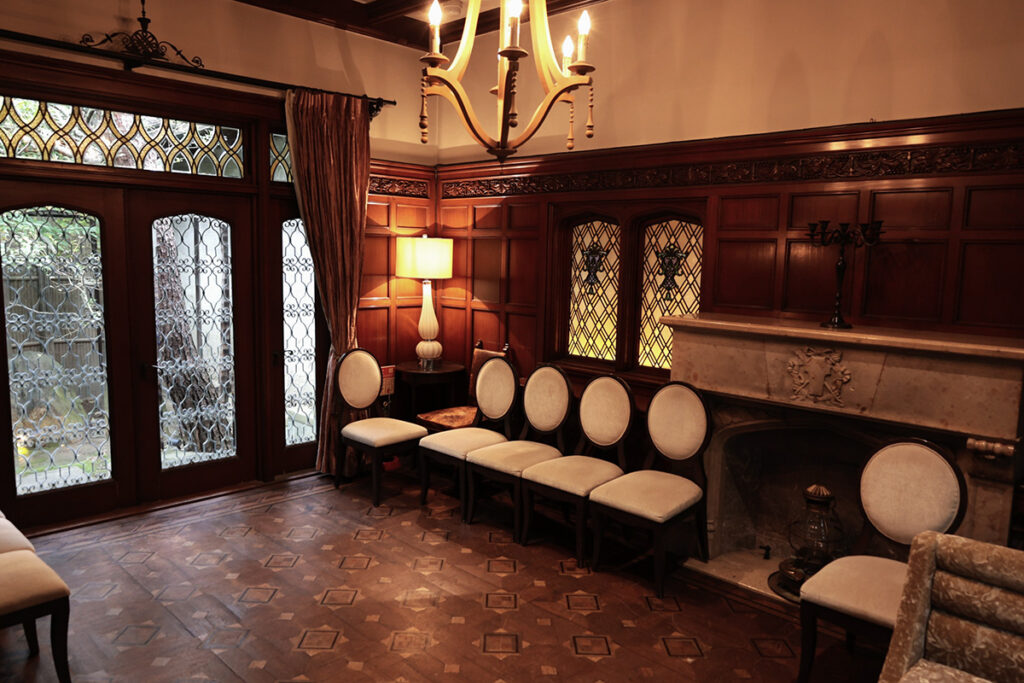
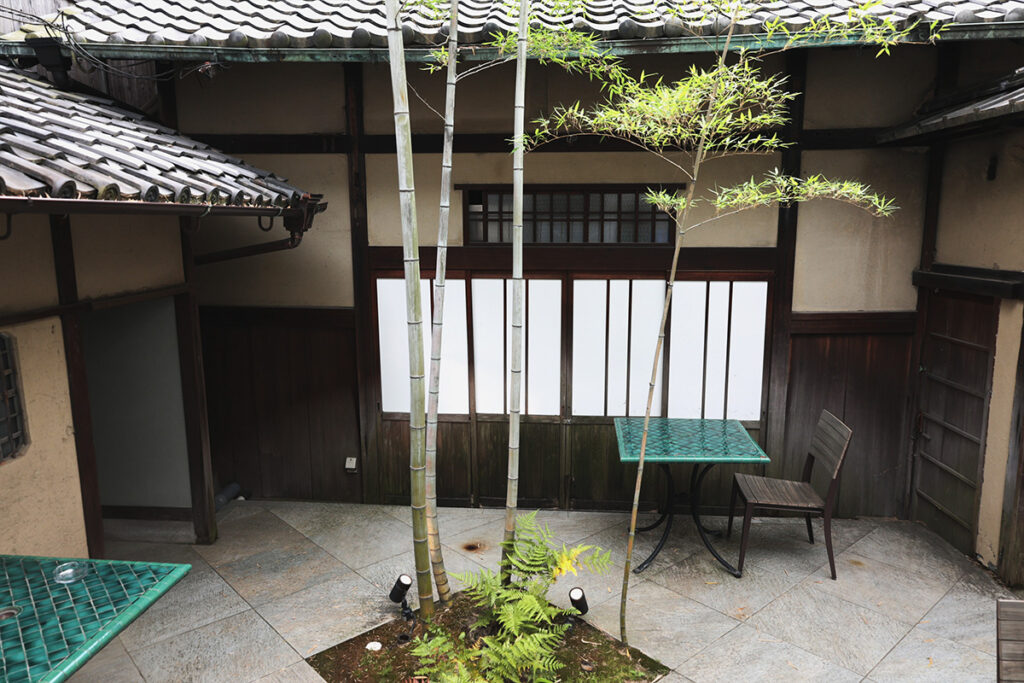
1st image: Private VIP room available for small group bookings such as afternoon tea
2nd image: Verdigris-colored interior accents scattered throughout the grounds
Walking through the building, you suddenly find yourself in a lush, verdant garden. Especially during this fragrant season of fresh greenery, the garden feels like a star in its own right. A canopy of leaves casts gentle shadows over winding paths, while stone lanterns softly glow beside a babbling stream that runs through the grounds. With the city’s hustle and bustle just beyond the fence, it almost feels like stepping into another world.
Even if you’re only stopping by to enjoy tea at the café, the garden is open for visitors to explore freely. If the VIP rooms aren’t booked, you can also take a look inside. “We’re always happy to welcome guests who drop by during their travels,” says the staff with warm hospitality. When visiting Higashiyama Ward, this is a perfect spot to relax and recharge, so be sure to add it to your list.
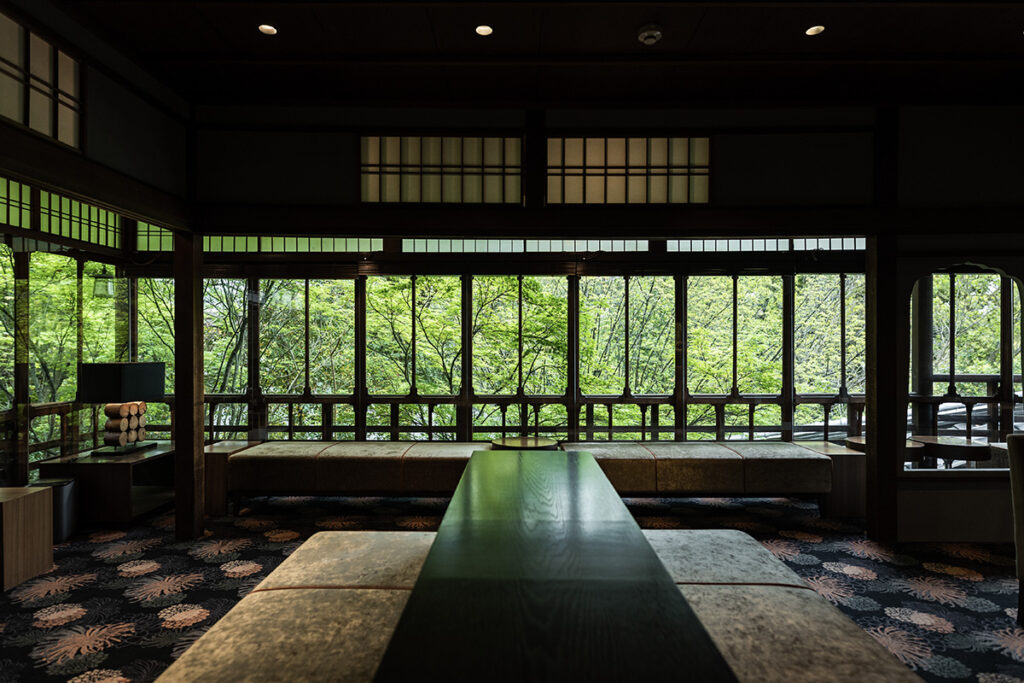
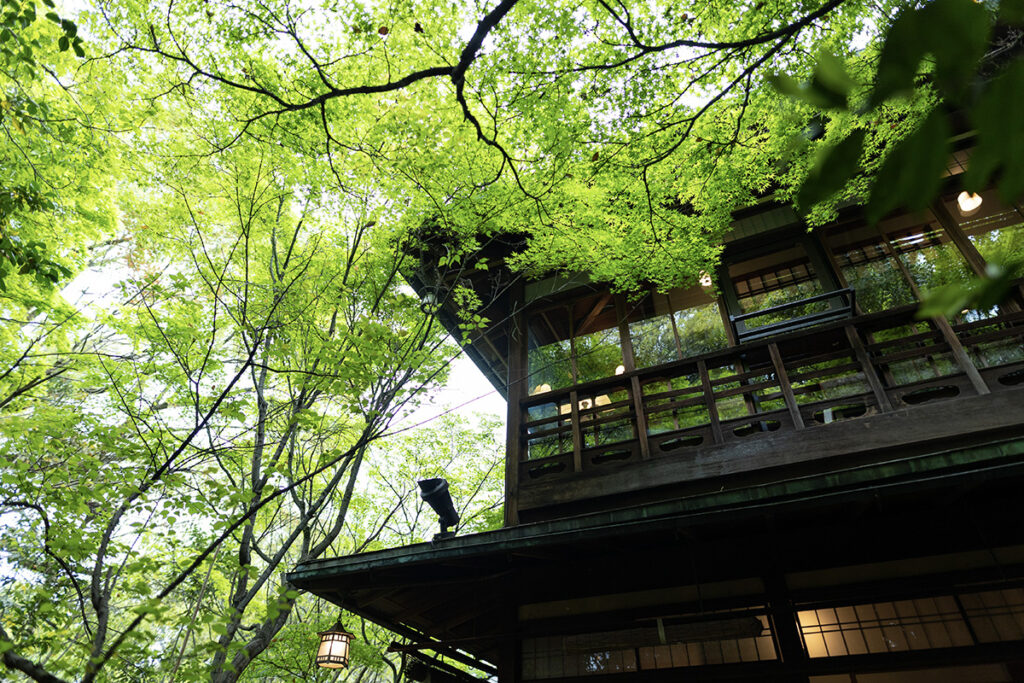
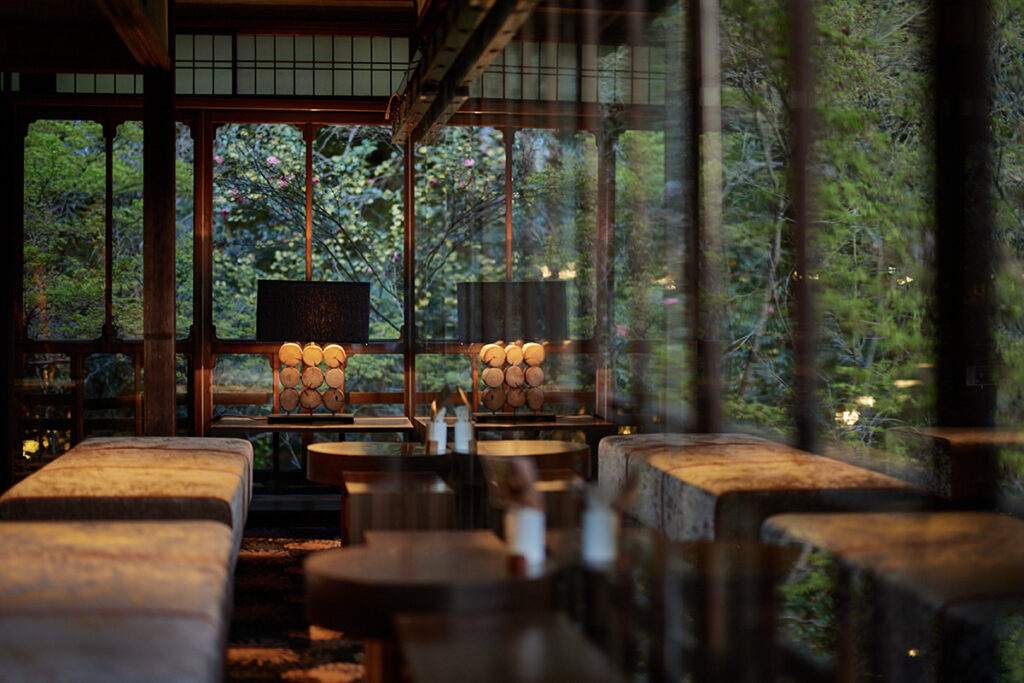
Photo courtesy of Salon de KANBAYASHI Kanbayashi Shunsho Honten
Salon de KANBAYASHI Kamibayashi Shunsho Honten
Address: AKAGANE RESORT KYOTO HIGASHIYAMA 1925, 400-1 Kinencho, Shimo-Gawara-dori, Takadaiji Tower-mae Noboru, Higashiyama-ku, Kyoto City, 605-0828
Hours: 11:30 AM – 5:00 PM
Closed: Tuesdays. Closed on weekends and holidays depending on weddings.
Website: https://www.salondekanbayashi.com
Instagram: @salon_de_kanbayashi

